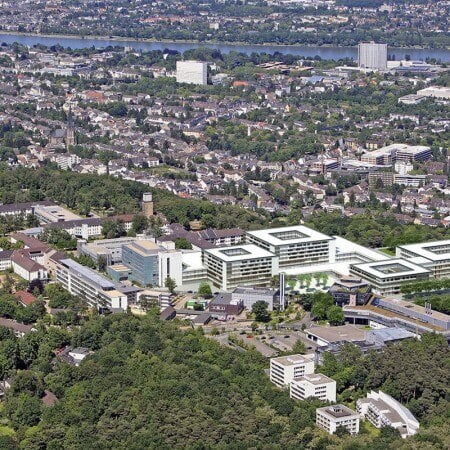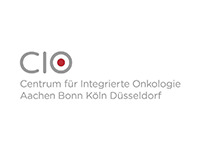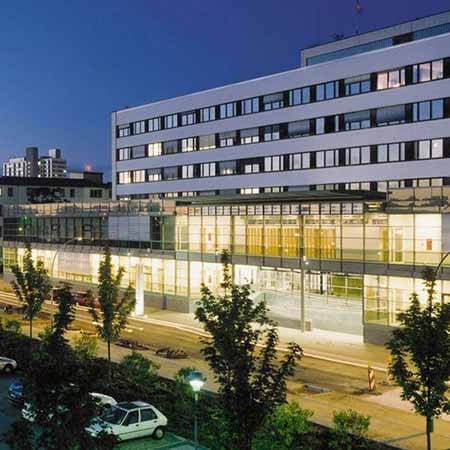Epilepsy is a disease developing from the excessive pathological electrical activity of certain parts of the brain, leading to periodic seizures.
Content
- The subject of epilepsy treatment
- Principles of conservative therapy
- Surgery for epilepsy treatment
- Is the surgery for epilepsy followed by any risks?
- Vagus nerve stimulation
- Why undergo epilepsy treatment in Germany?
- The cost of treatment
The subject of epilepsy treatment
Even though medicine aims its efforts toward the elimination of the root cause of any disease, it is important to understand that with epilepsy it is mostly the seizure (a symptom) that is subjected to the treatment and, accordingly, the goal of therapy is to achieve a kind of management over seizures.
So, the first step in the treatment of epilepsy in Germany is medical diagnosis of the type of epilepsy and seizures the patient has.
Epilepsy seizures in neurology can be divided into two large groups: focal and generalized. This division arose based on the extent of involvement of the brain in the epilepsy process. If the pathological activity is limited to a specific area of the brain, then seizures are focal. If epilepsy is registered over extensive areas of the central nervous system, the type of seizure it is followed by will be called generalized. It is not unusual that patients with focal seizures may notice them become generalized. In medicine, such a phenomenon is called secondary generalization. Besides, in some cases, it may be difficult to distinguish one type of seizure from another because their appearance may be similar. Some seizures are difficult to classify as generalized or focal.
And again, since there are many types of epileptic seizures distinguished in neurology, it is necessary to tell the doctor the exact features of the seizures. For example, such a sign as impaired consciousness at the time of the seizure is important. The state of consciousness of a person with epilepsy at the time of the seizure is often misinterpreted. For example, if the patients with epilepsy do not answer questions during a seizure, witnesses regard it as an impaired consciousness. At the same time, there are seizures accompanied by a stop of speech with clear consciousness. On the contrary, if patients continue the action or movement they have started, witnesses believe that consciousness is not impaired. However, the possibility of automatic movements or actions during the epileptic seizure does not exclude impaired consciousness. So, patients should try to be clear on what they did feel during the seizure.
Understanding whether an epilepsy seizure is generalized or focal is extremely important because the type of therapy the clinician chooses depends on it. A description of the seizure from beginning to end, as well as electroencephalography (EEG) records, helps the physician determine the type of epilepsy seizures needed to be dealt with.
Epilepsy is a pathology of the central nervous system that is characterized by recurrent seizures.
Treatment includes ketogenic diet, anti-epileptic drugs, surgery and deep brain stimulation.
Cost of conservative treatment is from €2,807. You can find other prices on the Booking Health website.
The best hospitals in Germany are:
- University Hospital of Ludwig Maximilian University of Munich
- Helios Hospital Berlin-Buch
- University Hospital Rechts der Isar Munich
- University Hospital Frankfurt-am-Main
- Clinic of Advanced Biological Medicine Frankfurt-am-Main
Principles of conservative therapy
Conservative therapy that implies the treatment with medication belongs to the first-line methods of treatment in neurology, especially when it comes to the patients with epilepsy.
Drug therapy for epilepsy has some features that must be taken into account in its implementation.
First, the treatment of the patient with newly diagnosed epilepsy usually begins with a single drug. Given the peculiarities of antiepileptic medication, the dose of the drug should be gradually increased up to the most effective one. If therapy is ineffective, the dosage is first increased within the safe limits tolerated by the particular patient. If the treatment fails, the specialist changes the therapy. The combination of drugs is acceptable in individual cases, which is determined by the treating physician. Combination therapy (treatment with two or more drugs) is usually resorted to after at least two attempts of using monotherapy (one drug) were made, since monotherapy is usually better tolerated by patients and it is safer for long-term treatment.
The appropriate drug is selected by the doctor based on the type of epilepsy, the patient's state of health, age, and several other factors. Only a doctor can choose the right drug correctly, but the patient's opinion should also be taken into account when choosing a therapy.
It should be noted that some medications require a gradual increase in dose. Sometimes the process of selecting therapy consists of gradually increasing the number of drugs taken. This is called dose titration. The initial dose in such cases may be far from the one that will eventually have an effect.
The average duration of therapy is 2 – 5 years. The effectiveness of treatment is assessed by the absence of seizures and the normalization of diagnostic data. In 70% of patients with epilepsy, properly chosen therapy leads to the disappearance of seizures. Further medication is administered under the supervision of a doctor and with regular medical examinations.
The therapy must be withdrawn under the supervision of a physician. It is never recommended to cancel or reduce the dosage of medication on your own.
Surgery for epilepsy treatment
Surgery for the patients with epilepsy is indicated when diagnosis detects seizures originating in the specific areas of the brain that are not linked to vital body functions so that they could be removed. Statistics in medicine show that about 20% of patients with epilepsy are prescribed surgery.
About 50% of all surgical cases of epilepsy treatment consist in the resection of brain tumors, as it is very common for a person with a brain tumor to experience epilepsy. The second common surgery most often involves temporal lobectomy for hippocampal sclerosis.
If seizures originate in the area that cannot be removed, doctors may perform corpus callosum commissurotomy or functional hemispherectomy that prevent the pathological process from spreading.
For many patients, surgery helps to completely eliminate epilepsy. However, some patients still need to use drugs to prevent rare seizures, taken at lower dosage though.
Is the surgery for epilepsy followed by any risks?
The risks during surgery in the patients with epilepsy are generally not higher than in healthy individuals.
To prevent any unforeseen complications both surgeon and anesthesiologist must be informed about the features of epilepsy in a particular patient and any treatment conducted prior to surgery.
The patient with epilepsy also must comply with the recommendation of the treating physician even during the surgical treatment. Regarding surgery, the physician may decide to change the form of administration of the prescribed drug therapy, if necessary.
In addition, some antiepileptic drugs may alter blood clotting and may cause side effects after surgery, for example, prolonged bleeding, decreased platelet counts, or abnormalities in other indicators of the clotting system. Sometimes such disorders may not be noticeable in the absence of diseases, injuries, etc., but may show under the influence of triggering factors, one of which may be surgery.
The use of anesthetics may lead to seizures in the postoperative period, which are then controlled by separate measures. The use of local anesthetics in minor surgical procedures performed in the outpatient setting usually does not increase the risk of seizures.
Vagus nerve stimulation
The patients who no longer got better after conservative therapy end up being candidates for surgery. But before they get to the intervention, doctors examine the brain to identify where the seizure-provoking processes originate. And for this, specialists from different areas of medicine might be involved in the surgical preparation process.
After the examination, the patient may be prescribed surgery, during which the surgeons will respect the affected areas, if the "provoking" cells of the brain are concentrated in one place. In the opposite scenario, when there are many cells and they are scattered in different locations, surgeons resort to vagus nerve stimulation.
The vagus nerve plays a part in the epileptic process. And years of experience in world neurology have led to the fact that vagus nerve stimulation results in fewer seizures, with a gradual reduction in their frequency (although it does not belong to the main methods of treatment).
It is recommended for those with lesions responsible for epileptic seizures difficult or impossible to locate and surgically remove. For example, a patient may have the seizure focus concentrated in a functionally significant area, and the surgery that follows can affect vision, hearing, and movement in general.
Why undergo epilepsy treatment in Germany?
Epilepsy treatment in Germany is a common form of medical care, based, among other things, on the social equality of everyone who seeks help. This approach is based on centuries of accumulated experience in neurology, attention to patients, cutting-edge innovative technology, and responsibility for the decisions and actions in medical care.
The choice in favor of treatment in Germany is first of all explained by the reduced period of the overall treatment, giving the patient vital comfort, which is quite an important criterion for epilepsy. It is worth noting that a shorter therapy period is in no way related to the lower quality of the medical services. The treatment of epilepsy in the German neurology hospitals is carried out with greater efficiency, confirmed by numerous case histories and testimonials of those who once made such a responsible, but right decision.
You can undergo epilepsy treatment in the following German hospitals:
- Epilepsy Center Bethel Bielefeld.
- University Hospital Bonn.
- Bundeswehr Academic Hospital Berlin.
- Beta Klinik Bonn.
- Charite University Hospital Berlin.
You are welcome to check out the profiles of the hospitals on the Booking Health website.
The cost of treatment
The question that is on many people’s minds is: Will the cost of treatment of epilepsy in Germany be compatible with my financial abilities? Of course, an unambiguous answer is not possible to provide before a person undergoes full diagnostic examination and doctors draw up an individual therapy plan. But today the amount of requests received by the German medical centers and clinics shows that residents of different countries in the world often choose treatment in Germany as an effective measure proved helpful for adults or children suffering from this disease.
The average prices of epilepsy treatment in Germany are as follows:
- The price of diagnosis starts from 1,596 EUR.
- The price of diagnosis and conservative treatment starts from 2,807 EUR.
- The cost of treatment with surgery starts from 28,886 EUR.
- The cost of treatment with deep brain stimulation starts from 20,525 EUR.
- The price of neurological rehabilitation starts from 540 EUR.
You can find more prices for treatment procedures on the Booking Health website.
To get an individual consultation on the cost of treatment of epilepsy for your diagnosis, please fill in the request form, and a Booking Health consultant will contact you shortly.
Authors: Dr. Nadezhda Ivanisova, Dr. Sergey Pashchenko













